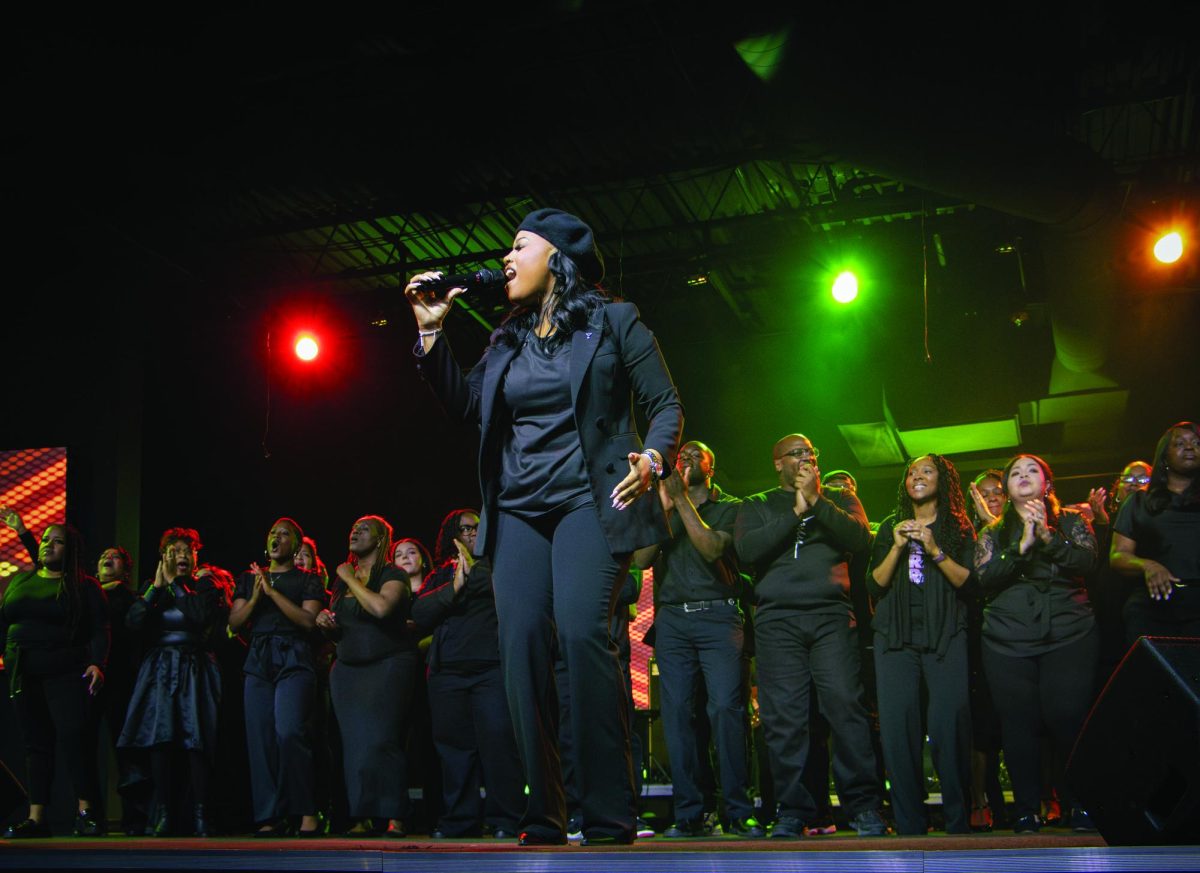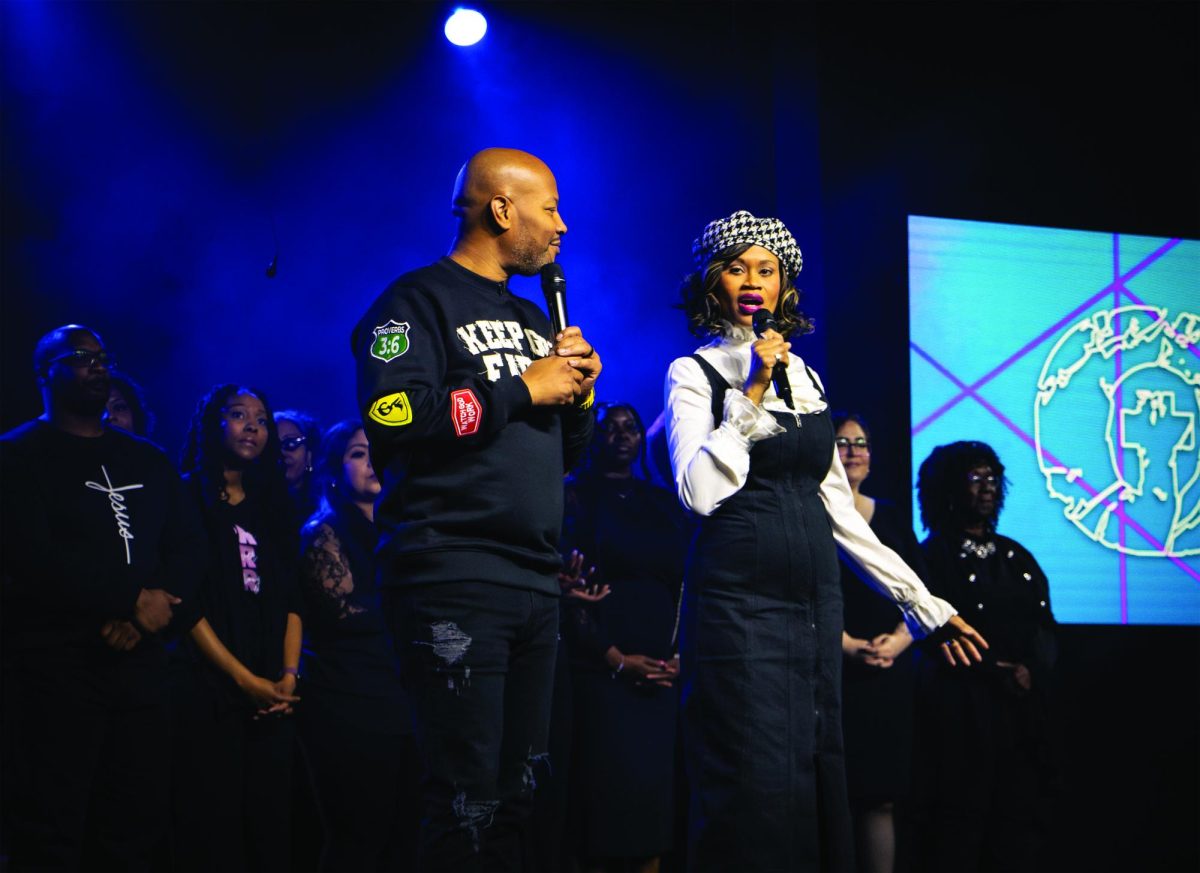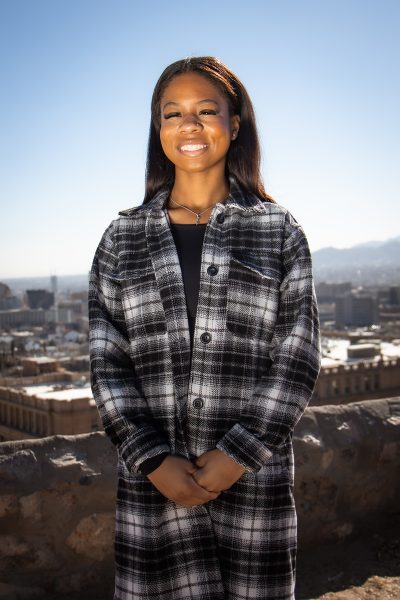When enslaved Africans arrived in America, many brought their cultural and religious traditions with them. As the plantation complex developed, Africans were continually indoctrinated into English customs, one of those being the practice of Christianity.
Enslaved Black Americans started to use the Bible as a sort of spoken word, reciting the shorthand of stories from the text that they were prohibited from reading. As larger and larger numbers of slaves began converting to Christianity, many clergymen eventually began to defend the institution of slavery, citing verses in Ephesians and Colossians that read, “slaves, obey your earthly master.”
However, some believe there is no correlation between the practice of Christianity and the “passiveness” of enslaved Africans. Henry Louis Gates Jr. is a literary critic and director of Hutchins Center for African and African American Research at Harvard University. His book, “The Black Church: This is Our Story, This is Our Song,” details the Black Church’s role in African American activism.
“The Black Church has a long and noble history in relation to Black political action, dating back at least to the late 18th century. The failure of enslaved African Americans to overthrow the institution of slavery, as their Haitian sisters and brothers would do, cannot be traced to the passivity inbred by Christianity,” Gates wrote.
Over centuries, an institution that philosopher Karl Marx named the “sigh of the oppressed” became a motivation for resistance and a source of community and resources for African Americans.
Many of the slaves’ practices of the religion happened outside the overseer’s line of sight. Slave preachers often reframed their sermons to include messages of salvation and freedom, while spiritual songs included directions for secret gathering or escape.
Eventually, Christianity became a cornerstone for the Civil Rights Movement and Black churches began to serve as centers of organization, civic activity, community service and intercultural celebration.
“Without the role of the Black Church, the Civil Rights Act of 1964, and the Voting Rights Act of 1965 — signed into law by President Lyndon B. Johnson, with [Martin Luther] King Jr. by his side, and future congressman John Lewis, himself an ordained Baptist minister, present in 1965 — would never have been enacted when they were. There is no question that the Black Church is a parent of the civil rights movement, and today’s Black Lives Matter movement is one of its heirs,” Gates wrote.
Mount Zion Baptist Church was founded in El Paso in 1918, in the midst of the segregation that shaped much of El Paso’s housing and population patterns today. The historically Black church is located on Wyoming Ave. Since its founding over a century ago, other predominantly Black churches have emerged in the city.
Yazmyne Hallback, UTEP alumni and member of the historically black Alpha Kappa Alpha Sorority Inc., serves as the Worship Leader for The Rock Faith Center. The church, located in east El Paso, is pastored by her parents, Eric and Yaisa Hallback.
“Being part of a Black church my whole life, here in El Paso, there is not many [Black churches]. However, I know the ones that are here, we do target the community. Black churches in general have a cultural, political, and historical connection. Here in El Paso, having this community outreach [is important] because El Paso is only about 4 or 5% Black,” Yazmyne Hallback said.
The Rock Faith Center celebrates Blackness in a number of ways, such as hosting various members of the Divine Nine, a group of historically Black fraternities and sororities. As the Worship Leader, one way that Hallback connects with the greater Black community is through music.
“[For] Black History Month, we try to recognize pivotal worship leaders. The gospel, it stems from the Black church, and it falls under the umbrella of Christian music. [We recognize] the African community, as well, because that’s where our roots-roots are,” Hallback said.
More than seven in ten Black Americans identify as Christian today. However, patterns in public opinion polls show that their white counterparts are more likely than nonreligious whites to deny structural racism as an issue. A 2018 survey by the Public Religion Research Institute found that white Christians were twice as likely as nonreligious whites to justify police killings of Black men, and 30% more likely to claim Confederate monuments as symbols of Southern pride, rather than racism.
“Me being a Black Christian, seeing people try to use [Christianity], that’s where I’m like, ‘What do you stand for? Do you really study the word of God? Do you really apply it to your day-to-day life?’” Hallback said.
Regardless, the church remains a commonplace for Black Americans throughout the country. A 2020 study conducted by Pew Research Center found that 60% of Black churchgoers attend services with predominantly Black congregations.
Though many criticize Black Christians for practicing a religion that was one used to enslave them, the reclamation of the religion is one way that Black people were able to remain resilient throughout centuries of oppression. It is now a common thread among a body of people that often struggles to pinpoint their “roots” due to previous generations’ displacement. Black Christians in El Paso continue to use their religion as a tool for connection, organization and community.
Leah Austin is staff reporter at The Prospector and may be reached at [email protected].










